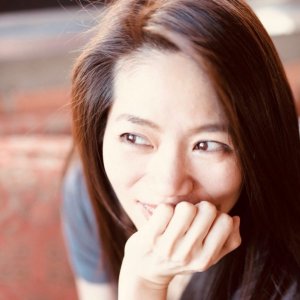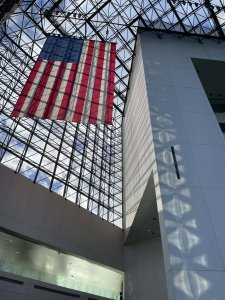This has been a fantastic experience for pursuing my academic research, inspiring me in new research directions, and learning about American society and culture much more in-depth than I had experienced before. It was a deeply rewarding opportunity.
First, let me express my sincere thanks to Dr. William Vocke, Executive Director, Taiwan Fulbright Foundation; Lisa Lin, Director of Fulbright Traditional Program; the Foundation for Scholarly Exchange, Taipei; and the Fulbright Scholar Program (United States Department of State Bureau of Educational and Cultural Affairs) for making this experience possible. Ms. Lin was especially helpful to me in negotiating all of the social and legal details of my stay at Cornell University; she made the process easy and transparent.
As a Fulbright grantee during the Spring 2018 semester, I conducted a cross-cultural study of solitary dining behavior, hosted by the SC Johnson College of Business, Cornell University, USA. I was invited to attend regular research group meetings of the renowned Food and Brand Lab, hosted by my Fulbright sponsor, Professor Brian Wansink (PhD in Marketing & Consumer Behavior — 1990, Stanford University). These meetings inspired me to consider different thinking and research aims, and new methods to approach data collection and theory construction. It was a great help for me in planning my research from the beginning of the observation, field trips, and in-depth interviews of restaurant owners, service attendants, and customers in order to identify and develop the solitary dining behavior measurement items. As a result, the first stage of my qualitative research has been completed. The second stage of quantitative data collection will begin in October 2018, in Taiwan, the United States, and other countries.
Academic integrity and workplace ethics are taken very seriously in the United States, as they should be. Cornell faculty, students, and staff must complete an Ethics course online when they matriculate at Cornell. From this experience, I have already added academic ethics to my Research Methods course curriculum for the first time.
After that, the took advantage of this opportunity to organize an overseas course for our EMBA program at Tunghai University, Taiwan. I ran a course on Hospitality in Cultural and Creative Management in New York City from 19-29 May, 2018. It was an intensive five-day program. Curriculum design took up more of my research time than I expected, but I was very pleased to share with my students to expand their views and international experience. Students engaged in numerous activities related to the hotel, restaurant, and cultural creative industries, and submitted both written and oral reports at the end of the stay. Final projects are due in January 2019.
Apart from these concrete achievements, which arose from my research agenda, it was the intangible and unexpected experiences that enriched my life in the United States. These created lasting memories and impressions that will always make me grateful to the Fulbright Foundation. In particular, I was struck by the cultural diversity of the United States, and the impact of ancestry and immigration experiences on Americans, in terms of their personal styles, tastes, and values. In fact, ancestry became part of my research plan, in ways that I could not have imagined before I came to the United States. This cultural diversity makes America a rich society, and for a scholar is a broad field for further study and research.
Before I received the Fulbright grant, I had been to the United States on numerous occasions, conducting fieldwork research for my doctorate (which I earned in the UK), participating in summer programs at Harvard University and other prestigious institutions, and as a tourist to various parts of the country. But, even with these experiences, I had never understood the United States – especially the academic community – with as much depth. I was welcomed warmly, and I took advantage of every opportunity. As one example, I audited a Consumer Behavior taught by Dr. Michael Lynn, Burton M. Sack ’61 Professor in Food and Beverage Management. His expertise and teaching style were inspirational to me in my own curriculum planning and course design.
In addition, I benefited from interacting with other international scholars – from China, Armenia, and Turkey– as they participated in the research activities of the Food and Brand Lab. As collaborators and fellow scholars, we formed a community of dedicated students of hospitality management and consumer behavior.
Managing editor: Yung-Chen Hung 洪永城





